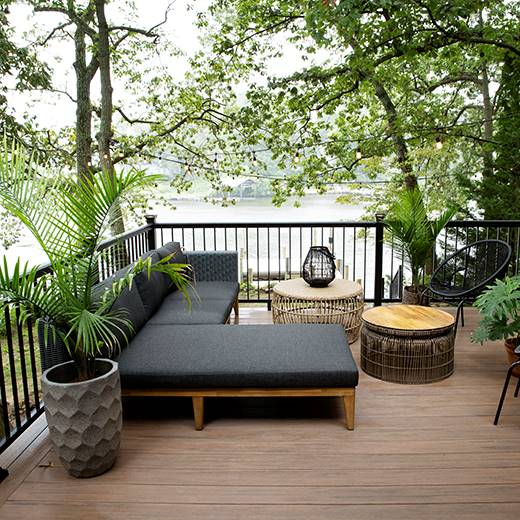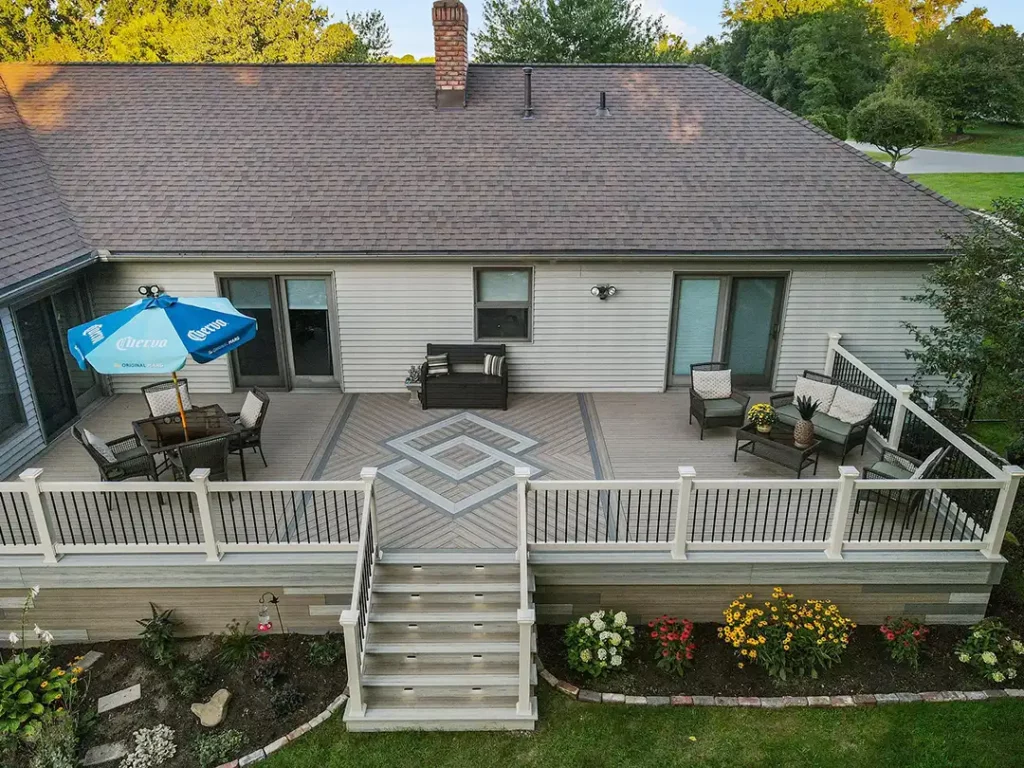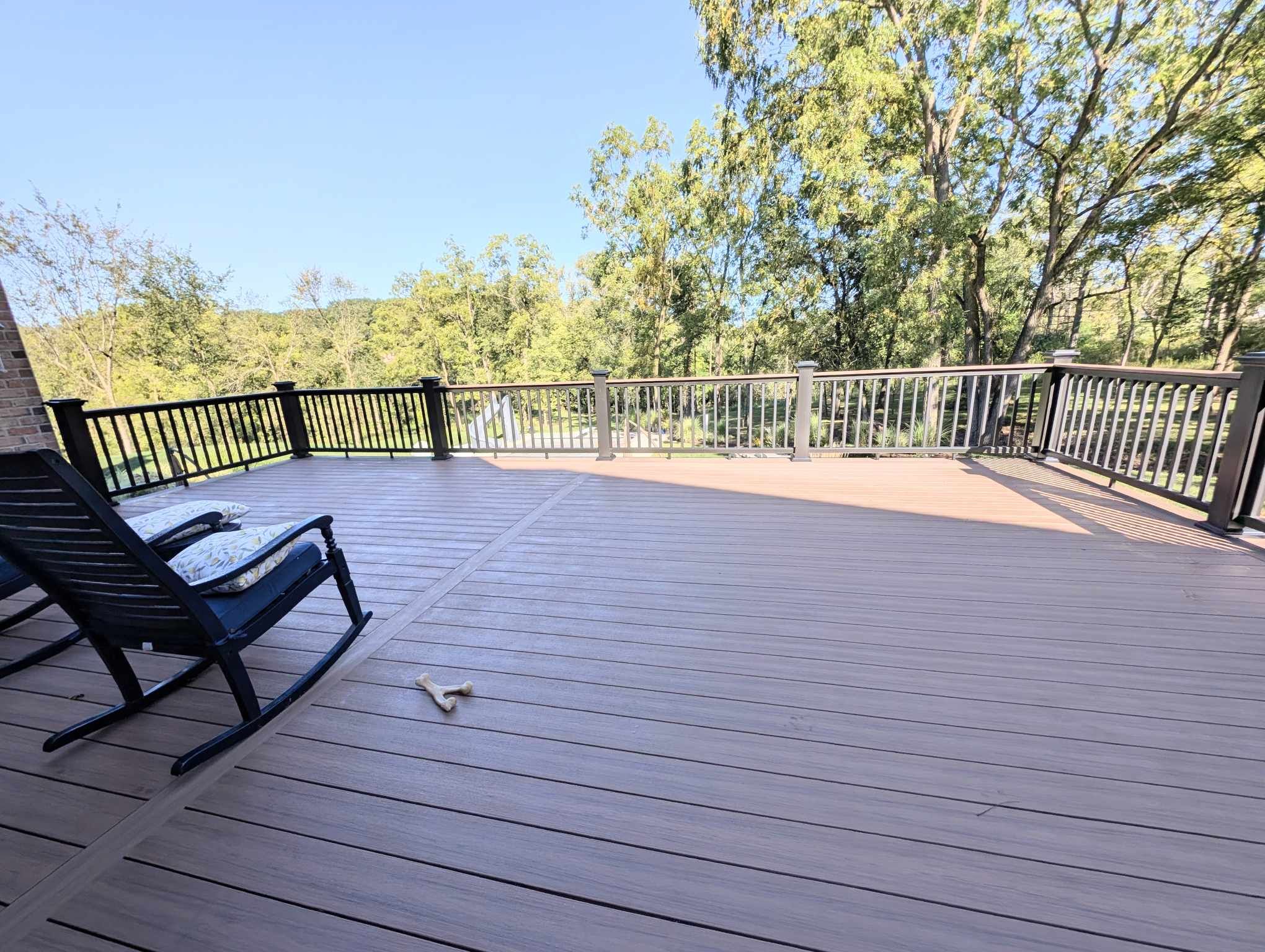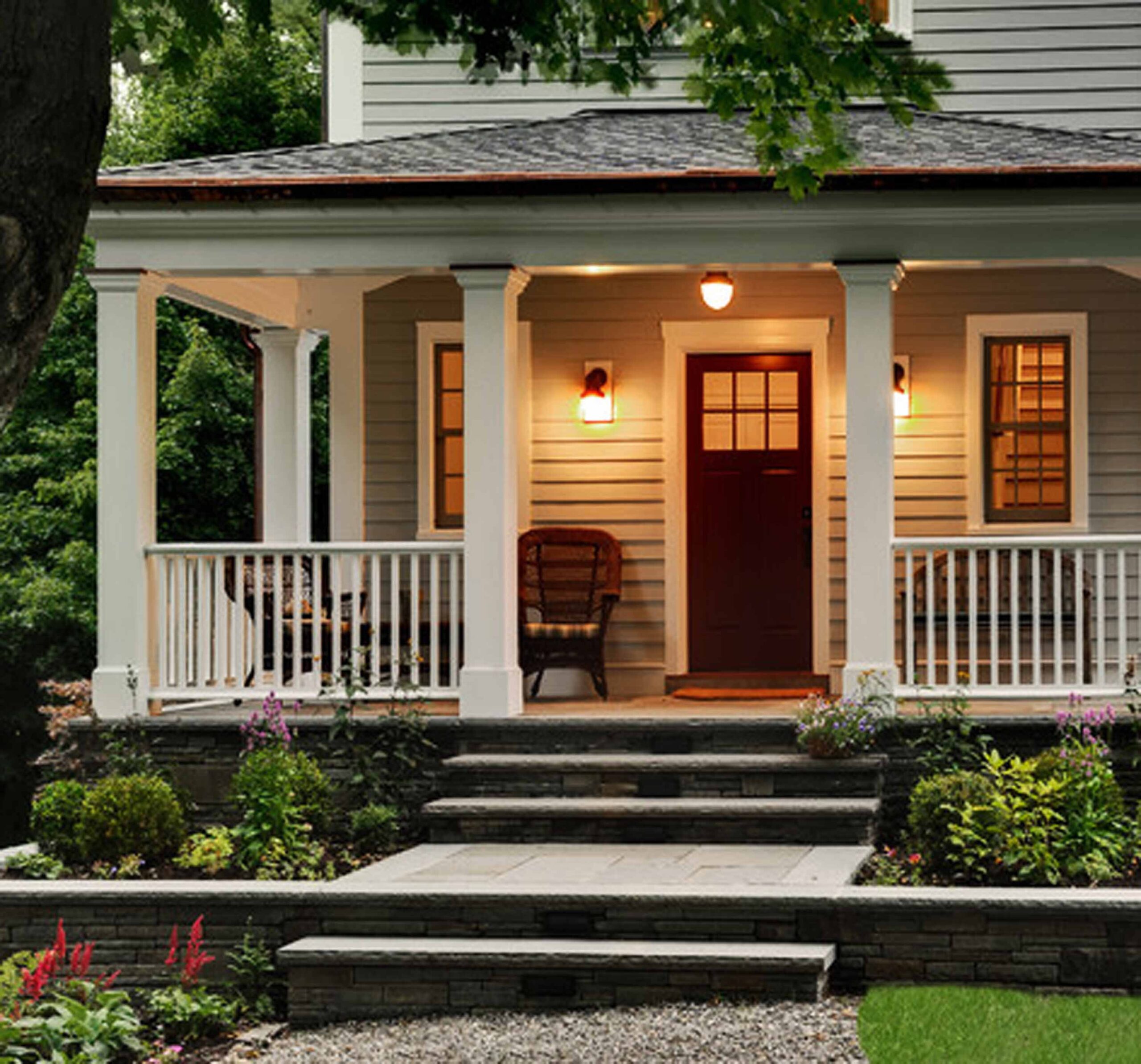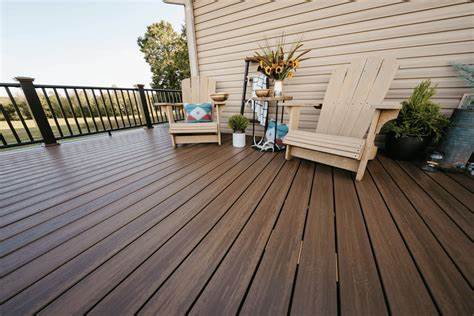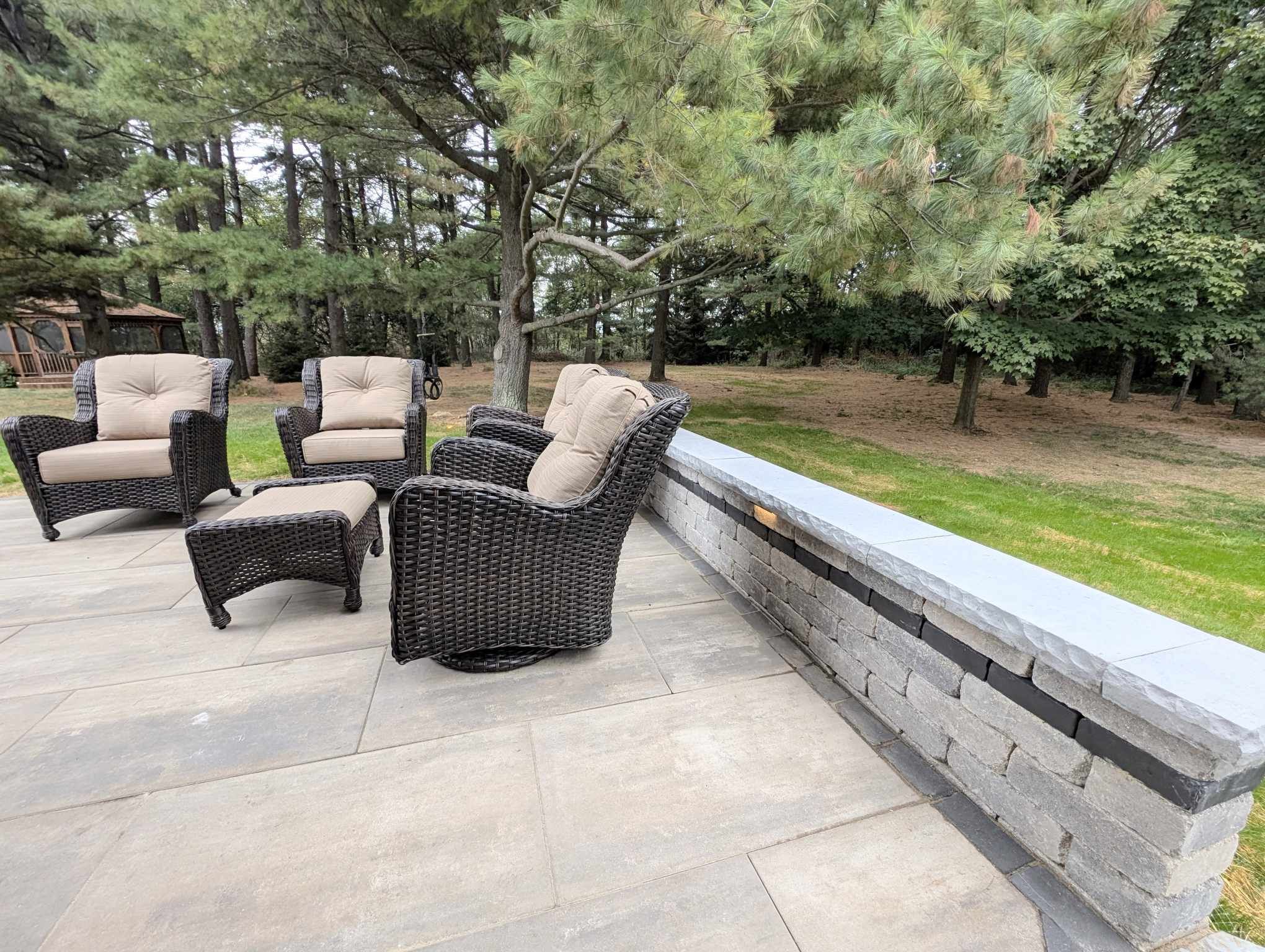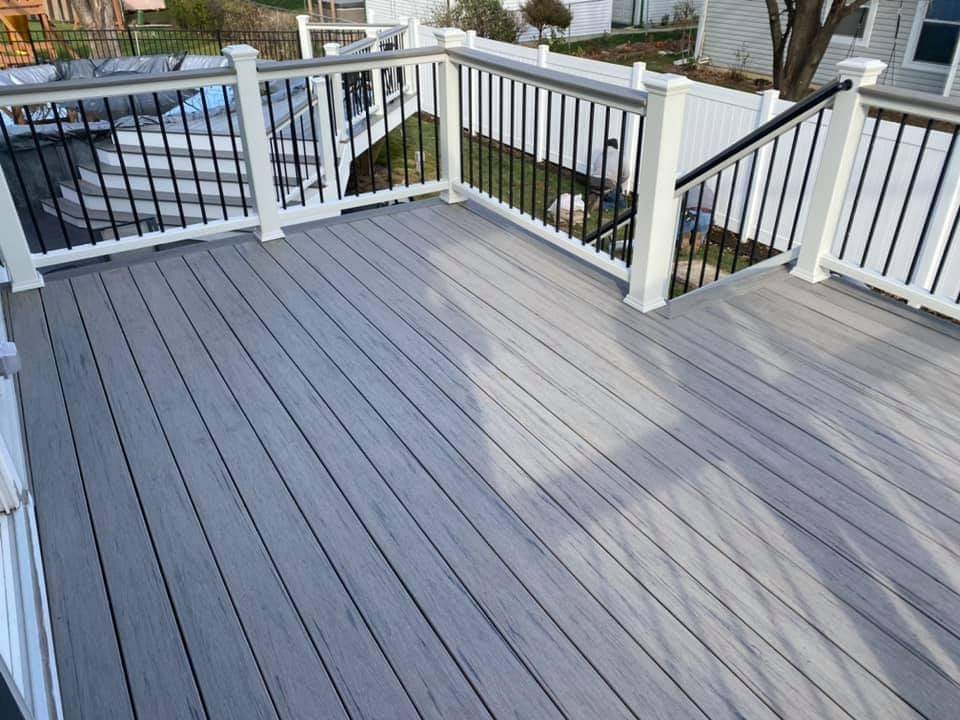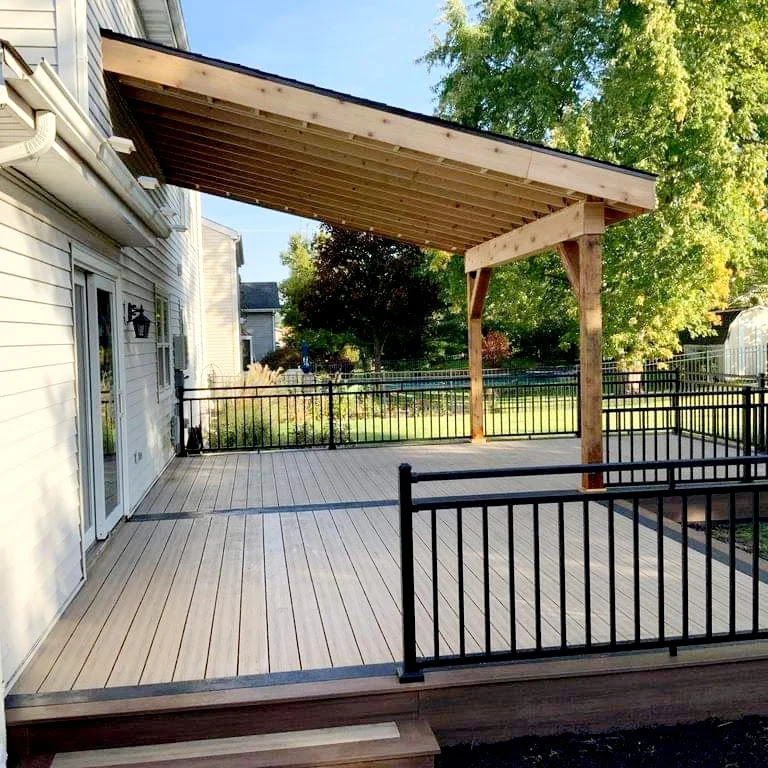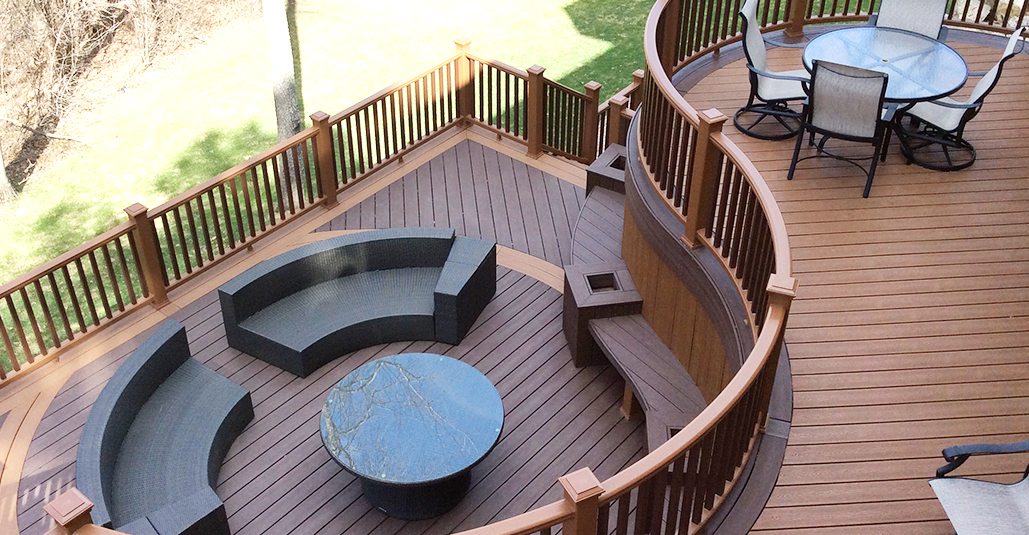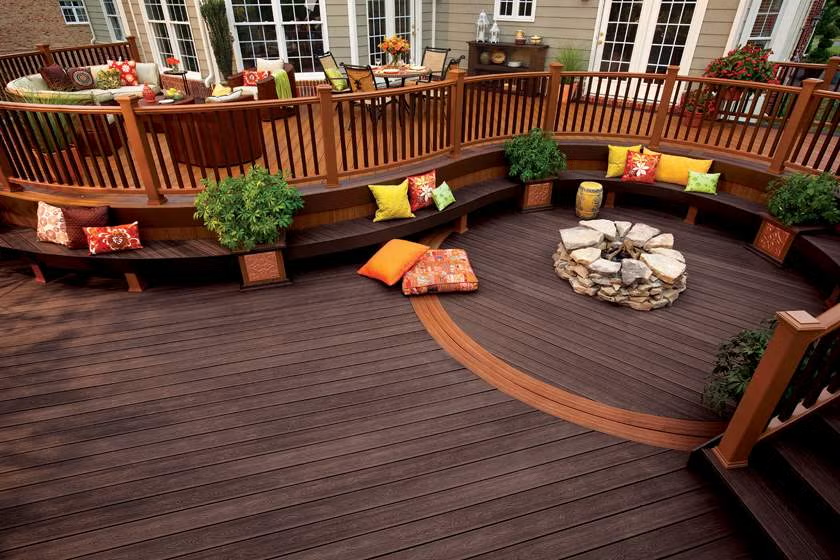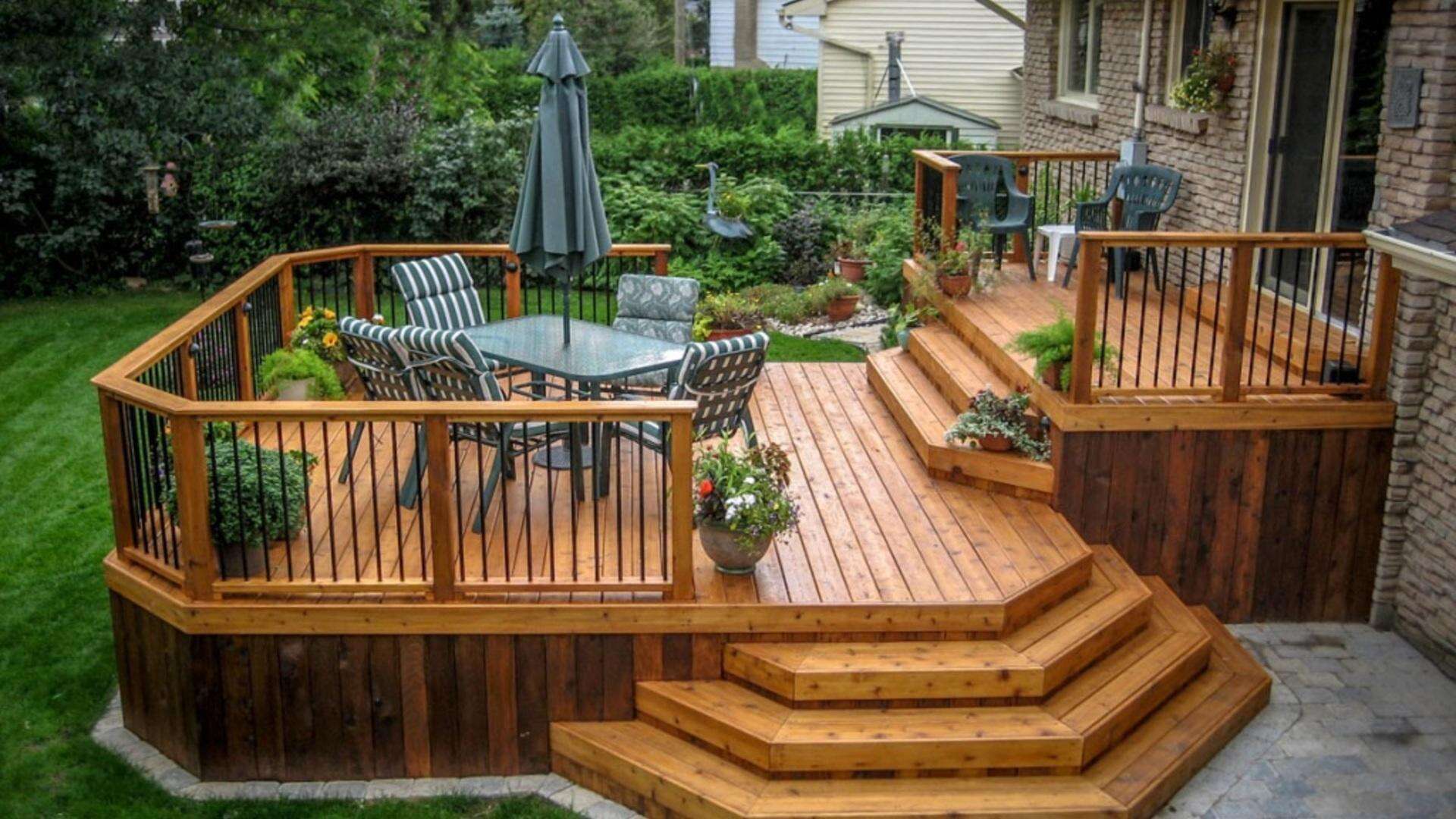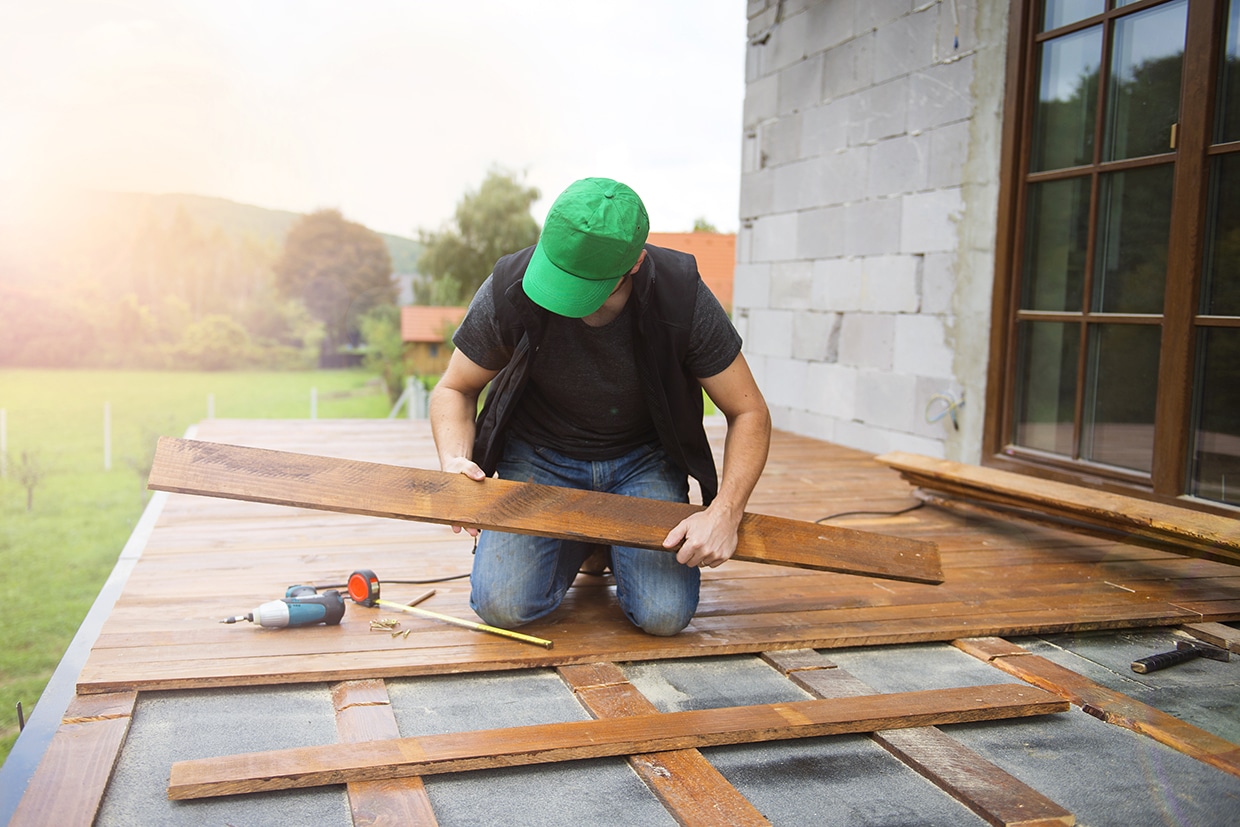When looking for an alternative to traditional wood decking, you have many options; among them, capped composites and PVC decking.
PVC, or polyvinyl chloride, is the third most produced synthetic plastic polymer in the world. PVC is a wise choice for many decking and porch projects because of its chemical composition. PVC is a strong material that is highly resistant to moisture, insects, dents, and even flames.
- No Organic Content
PVC decking is entirely synthetic. That means that there isn’t anything to promote the growth of mold, which is a major concern and cause of deck rot. PVC decking for installations near water is frequently chosen by homeowners and contractors due to its resilience to moisture.
- Low Maintenance
PVC Decking is low maintenance just as with capped composites. It won’t requiring any refinishing, painting, or staining. All that is required to maintain the decking to look their best is washing with soap and water 2x a year.
- Warranty
PVC decking has the better warranties. Decking manufacturers such as TimberTech Azek and Fiberon for PVC Decking offer 50 Year/ Limited Lifetime warranties. There are some exceptions when it comes to warranties such as stains from suntan lotion, ketchup and mustard.
There are, of course, some PVC decking disadvantages, but they are not very severe. Still, it pays to be aware of them.
- Expansion and Contraction
PVC decking will expand and shrink as a result of temperature variations. The spacing (gaps) between the boards should be in accordance with the specifications for installing the decking. The color of the decking and the length of the board runs are two other factors that can help reduce the effects of expansions and contractions. Lighter hues will not expand as much because they naturally absorb less heat. Try using lighter hues for the deck’s main body and darker hues for the inlay or edge. Include a breaker board between each continuous line of longer boards and use shorter boards if possible.
Unlike traditional wood, neither PVC nor composite decking products are made to support a deck structurally. With this said, PVC is a lighter material and requires framing to be closer together than a wood deck might.
- Cost
PVC decking is typically more expensive than composites and wood decking. Consider the additional cost of routine maintenance and repair before making your ultimate decision. You can be looking at a hefty financial spend, depending on the size of your outside space. PVC decking’s lower long-term maintenance costs might offset their greater original cost.
Appearance
You might be thinking that PVC decking sounds like a fantastic alternative, but how does it look? It depends on the brand you choose, just like with many other things. PVC decking was once despised by many homeowners as being too “fake” or “plastic looking.” This is not the case with TimberTech Azek or Fiberon Decking that offer PVC products with realistic grain characteristics and multi-tonal streaking that resembles wood better.
Need help deciding on if PVC decking is right for you? Reach out to us today!


